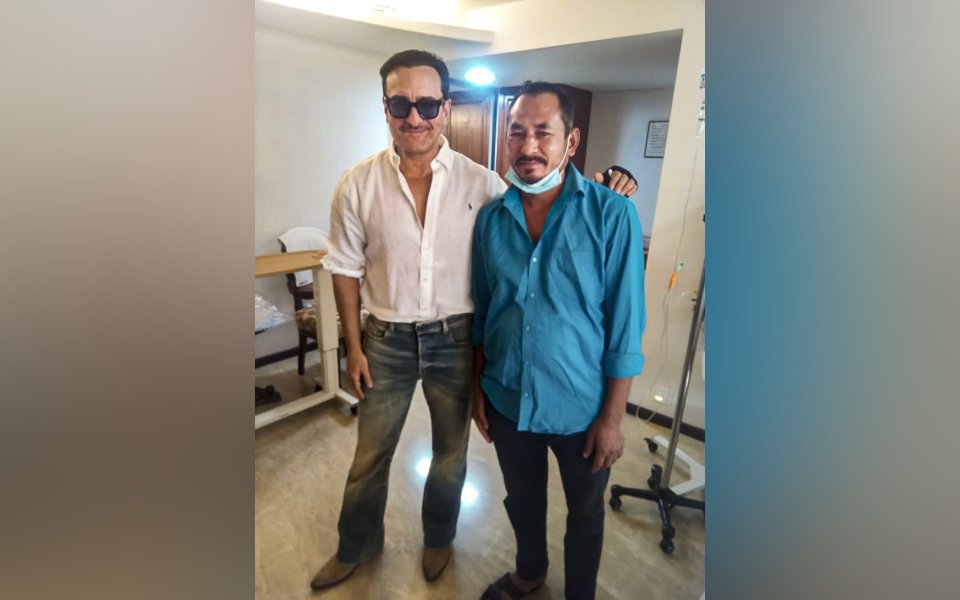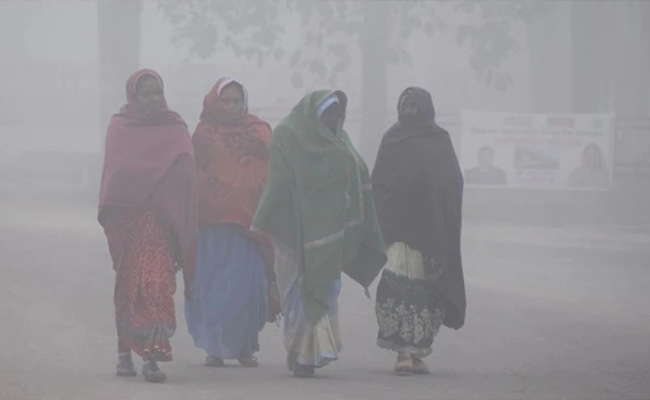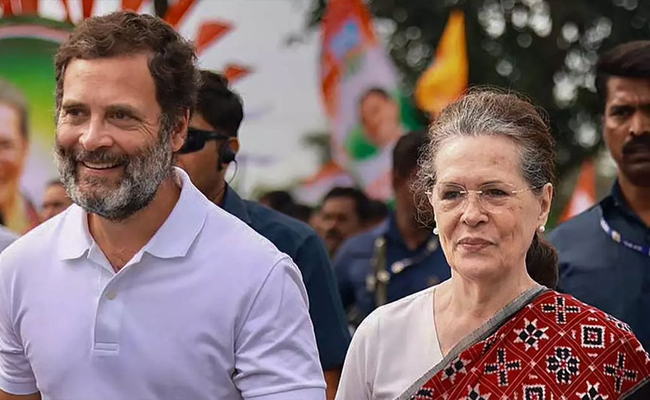Mumbai, Jan 22 (PTI): Bollywood actor Saif Ali Khan has met auto-rickshaw driver Bhajan Singh Rana, who rushed him to hospital after he was injured in the knife attack at his home in Mumbai in the wee hours last week, and thanked him for the timely help.
The driver told PTI that Saif also gave him some money and assured all help to him whenever needed.
Asked how much money Saif gave him, Rana declined to disclose the exact amount, maintaining the actor requested him not to share this information.
However, the driver revealed that a social worker, Faizan Ansari, separately gave him Rs 11,000.
Rana said on reaching the Lilavati Hospital in Bandra just before Saif was discharged on Tuesday evening, he met the filmstar and his family members, and touched the feet of his mother, veteran actress Sharmila Tagore, out of reverence.
The auto driver said they treated him with respect and also clicked pictures with him.
He said Khan promised to stay in touch with him.
Khan (54) was repeatedly stabbed by a Bangladeshi national inside his 12th-floor apartment in the upscale Bandra area in the wee hours of January 16 during a robbery attempt. He suffered multiple stab injuries and underwent two surgeries at the private hospital, located a few kilometres away from the actor's building.
"I met him (Saif) yesterday (Tuesday) at the hospital. He called to thank me for taking him to the hospital. He praised me. I got the blessings from him and his family," the auto-rickshaw driver said.
"He (Khan) introduced me to his mother (Sharmila Tagore), and I touched her feet. He gave me (money) whatever he felt was right, and said whenever I need help he will be there," Rana said.
The intruder, Shareeful Islam Shehzad Mohammad Rohilla Amin Fakir (30), who illegally entered India last year and changed his name to Vijay Das, was arrested on Sunday from adjoining Thane city.
A preliminary investigation suggests the accused, currently in police custody, had entered the actor's home intending to commit theft, police said.
Meanwhile, police officials said on Wednesday that multiple departments under the Forensic Science Laboratory (FSL) at Kalina will examine key pieces of evidence seized during the investigation of the stabbing case.
A variety of materials, including mobile phones, clothes of the accused, and CCTV footage seized following the arrest of Fakir have been sent to the FSL for examination.
FSL departments such as Tape Authentication and Speaker Identification (TASI), Biology, DNA, Footprints, Physics, Cyber, and others will be involved in analysing the evidence, a police official said.
He said police didn't notice blood stains on the clothes of the accused seized from his bag when he was arrested from Thane.
The official said investigators are facing difficulty in interrogating Fakir due to the language barrier as he speaks Hindi with a heavy Bangladeshi accent. He has been asked to speak slowly so that police could decipher his statements.
Police on Tuesday reconstructed the sequence of events of the crime that unfolded at Khan's building, 'Satguru Sharan'. The accused was taken to a nearby building briefly during the recreation of the crime scene, the official added.
Shiv Sena leader Sanjay Nirupam commented on the “quick recovery” of the Bollywood actor.
“The doctors at Lilavati Hospital said the knife had penetrated 2.5 inches inside Saif Ali Khan's back and his surgery went on for six hours. They should tell us if a person who underwent a six-hour long operation can recover so quickly,” Nirupam asked.
Shiv Sena (UBT) Rajya Sabha MP Sanjay Raut also spoke of the actor’s speedy recovery.
“The knife was wedged deep, but Saif walked out alive from the hospital. This is nothing short of a miracle by the doctors,” Raut said.
Let the Truth be known. If you read VB and like VB, please be a VB Supporter and Help us deliver the Truth to one and all.
New Delhi (PTI): A 23-year-old woman was found dead in her house in Delhi's Prem Nagar area, with police suspecting it to be a case of suicide, an official said on Tuesday.
The deceased, identified as Anjali Singh, was found motionless in her room on Monday by her sister and her neighbour.
Police said her father, Vinod Kumar Singh (51), told them that he and his wife were away at work at the time of the incident, while their son and the other daughter were also not at home at the time of the incident.
ALSO READ: Koppal: Worms found in midday meal at Ningapur Government School
According to the family, the room in which Anjali was found was locked from the inside. The door was later forcibly opened by a neighbour and her sister with the help of a crowbar.
Her body was found lying on the bed inside the room, police said.
Preliminary inquiry revealed that Anjali had allegedly hanged herself using a piece of cloth tied to the ceiling fan.
It is suspected that the noose eventually might have loosened or torn off, resulting in her being found lying on the bed.
Family members informed the police that Anjali was a final-year student of a librarian science course from Indira Gandhi National Open University (IGNOU). About a week ago, her final-year examination results were declared, and she had failed, following which she had been under depression, they said.
The family has not raised any allegation of foul play, police said, adding that no suicide note or external injury marks were found on the body during the initial inspection.
Inquest proceedings have been initiated in the matter as per the law. The body has been sent for post-mortem examination to ascertain the exact cause of death, and further investigation is underway, police added.





